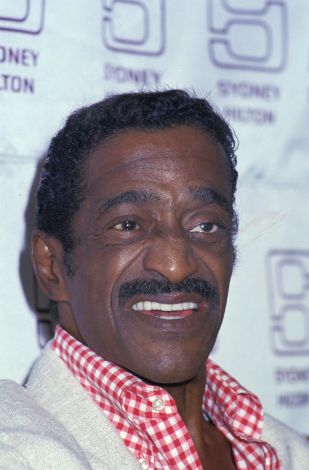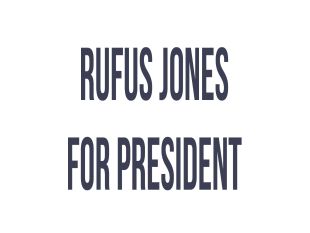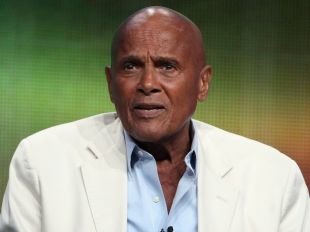Actor, singer, dancer Sammy Davis, Jr., the son of vaudeville entertainer Sammy Davis, began performing professionally at the age of three, appearing in his uncle Will Mastin's family act of seven men and seven women; during the early Depression the act was reduced in size to Davis, Jr., his father, and his uncle, and was called the Will Mastin trio. Soon he developed into a very versatile entertainer, skilled at singing, dancing, telling jokes, doing mimicry, and playing several instruments. He debuted onscreen at age seven in the short Rufus Jones for President (1933), in which he acted and danced. He toured the country with the Trio until the '40s, when he spent two years in the army. Upon his return, the act was renamed "The Will Mastin Trio, Starring Sammy Davis, Jr.," and the group began playing big variety theaters and top nightclubs. In the '50s he performed solo, soon becoming a popular TV entertainer as well; some critics considered him the world's greatest living entertainer. In 1954 he lost his left eye in a serious car accident and suffered other injuries that jeopardized his career. However, he quickly bounced back, and in the mid-'50s he began getting work in films, playing his first dramatic lead role in Anna Lucasta (1958). Also, in 1956 he debuted on Broadway as the star of Mr. Wonderful; later he starred in the Broadway show Golden Boy. As a screen actor he became best known for his work with the "Rat Pack," comprised of Frank Sinatra, Dean Martin, Peter Lawford, and Joey Bishop, who socialized and worked together; although the inclusion of a black man in the group was at the time considered egalitarian, his roles tended to be tokenistic and occasionally involved benign racist jokes at his expense. He somewhat alienated himself from black audiences, who occasionally booed him as a sell-out; and in a controversial move he converted to Judaism. He was also a popular recording star with several hits including "Mr. Bojangles" and "The Candy Man." He was frequently a guest star on TV specials and episodes of TV series, and twice hosted his own variety-talk shows, The Sammy Davis Jr. Show (NBC, 1966) and Sammy and Company (syndicated, 1975-77). He authored the autobiography Yes I Can (1965). He married and divorced Swedish actress Mai Britt.

Sammy Davis Jr.
Share on
Biography by AllMovie
Movie Highlights
Factsheet
- Was part of his father and Will Mastin's vaudeville act at 3 years old.
- Never went to school, but was occasionally tutored; received reading lessons from a black sergeant when he was in the Army's Special Services.
- Made film debut at 8 years old when he starred in the 1933 movie short Rufus Jones for President.
- Metronome magazine dubbed him Most Outstanding New Personality in 1946 and awarded him Record of the Year honors for his version of "The Way You Look Tonight."
- Involved in a major car accident in 1954, in which he lost his left eye.
- Appeared on Broadway for the first time in the 1956 musical Mr. Wonderful.
- Was a member of the infamous Rat Pack, headlining Las Vegas shows and starring in films with cohorts Frank Sinatra, Dean Martin, Joey Bishop and Peter Lawford.
- Had a best-selling autobiography in 1965 with Yes I Can: The Story of Sammy Davis Jr.; wrote another tome Why Me? in 1980 and posthumously published Sammy: The Autobiography of Sammy Davis Jr. in 2000.
- In 1966 had a short-run variety show on NBC called The Sammy Davis Jr. Show.
- Has received numerous awards, including the NAACP's Spingarn Medal in 1968 and a Kennedy Center Honor in 1987, and was inducted into the NAACP's Hall of Fame in 1989.


